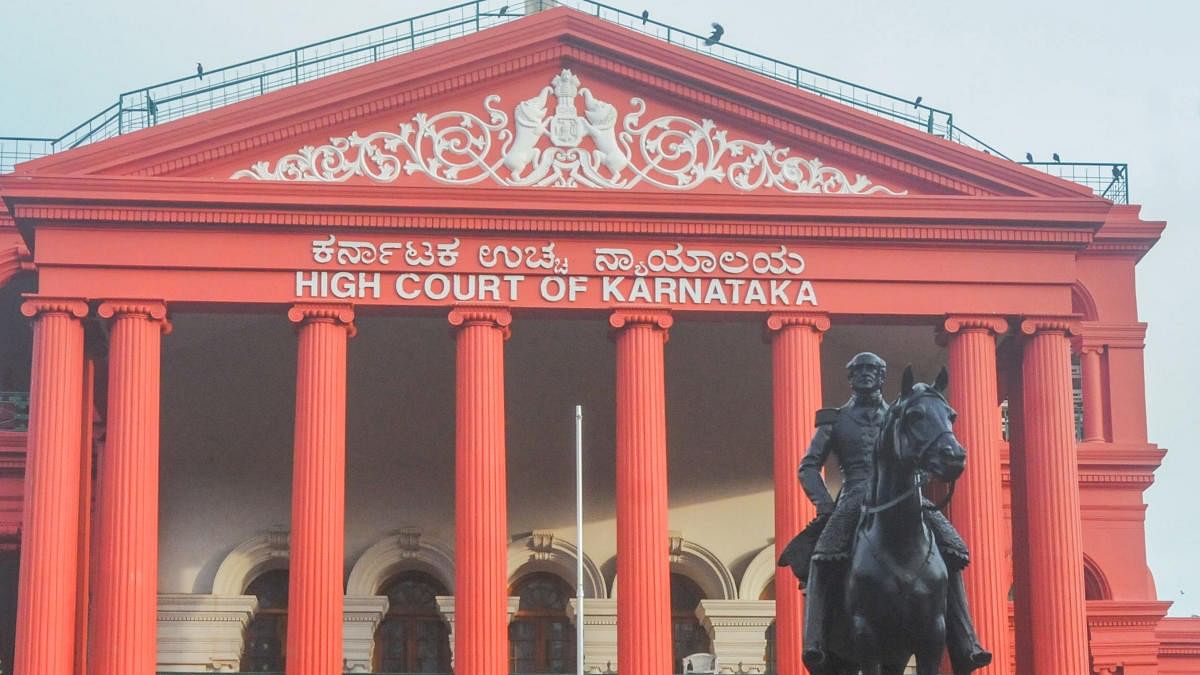
Karnataka HC.
Credit: DH Photo
Bengaluru: Denying salary arrears would offend Article 300A of the Constitution and wages, being the price of the sweat of an employee, constitute his property, the High Court of Karnataka has held.
A division bench comprising Justice Krishna S Dixit and Justice CM Joshi said this while dismissing the petition filed by the state government challenging the order of the Karnataka State Administration Tribunal (KSAT).
A man named TR Manjunath approached the KSAT seeking directions to pay him salary arrears in the pay scale admissible to the post which he held from 2009.
Manjunath was appointed on April 18, 1984, in the cadre of Assistant Engineer, in the Public Works Department (PWD). On September 3, 2009, he was given independent charge of the post of Assistant Executive Engineer (AEE) under Rule 32 of the Karnataka Civil Services Rules.
On April 16, 2018, he was promoted to the cadre of AEE with effect from the date of placement in independent charge, September 3, 2009. He was then regularly promoted to the cadre of Executive Engineer by notification dated June 27, 2018.
After his retirement in 2019, he approached the authorities seeking salary arrears, contending that he was not accorded increments on his promotion either to the cadre of AEE or EE. He moved the KSAT after the authorities fixed his pay and pension notionally only for the purpose of pension and to determine the date of eligibility in the cadre of AEE as September 3, 2009, not considering that he had worked in the cadre since that date.
On June 22, 2023, the KSAT directed the authorities to undertake re-fixation of pay in the cadre of EE and revision of last pay drawn in the EE cadre before retirement on superannuation. The tribunal further directed the authorities to pay salary arrears, including the differential amounts of terminal benefits/pension for the period between 2009 and 2018 with 8% interest and another Rs 2,500 as cost.
In its appeal challenging the KSAT order, the government contended that it was only a retrospective promotion and during such a period when Manjunath had held the post on independent charge, he had already received the charge allowance.
The division bench said that when a retrospective promotion is accorded in accordance with the extant rules, injustice meted out to the employee concerned is set at naught.
"It is no fault of his that promotion was denied to him despite entitlement. That being the position, denying the arrears of salary would offend Article 300A of the Constitution inasmuch as the wages being the price of the sweat of an employee constitute his property. Withholding of the same amounts to acquisition of his property without compensation which is constitutionally prohibited. This apart, there is no unjust enrichment of the employee inasmuch as the tribunal has directed for the discounting of allowances while working out the arrears of salary,” the bench said.
The court, however, set aside the tribunal’s direction to pay 8% interest on salary arrears and the Rs 2,500 cost payable to Manjunath.